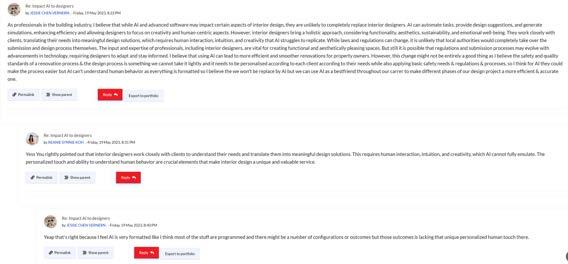
2 minute read
Contract & Management
The Kuala Lumpur (KL) mayor's announcement to exempt minor renovations from requiring certified permits is a move that could be beneficial for residents and businesses in the city. This change could simplify the renovation process and reduce bureaucratic hurdles for property owners. However, it is important to ensure that safety standards are still upheld during these renovations and that any potential risks are addressed. Overall,thispolicychangecouldhavepositiveeffectsonthelocaleconomy andencouragegrowthintheconstructionandrenovationindustries.
ABSTRACT : The major advantage of not requiring certified permits for minor construction is that it can save time and cost for both property owners and builders. Property owners can submit the necessary forms and complete the renovations themselves, without having to hire professionals such as architects or interior designers to handle the permit application process. This can lead to more efficient and smoother renovations for property owners. However, the change in policy may have an impact on professionalssuchasarchitectsandinteriordesigners,whomaylosesome business opportunities as property owners opt to handle the renovation process themselves. Additionally, the change may raise concerns about safety and quality standards, as property owners who are not experienced inconstructionmaynotbeawareofcertainregulationsorrequirements.It isimportantfortheauthoritiestoensurethatsafetyandqualitystandards are maintained, even for minor renovations that do not require certified permits.
Advertisement
As professionals in the building industry, do you feel that your role may one day be further reduced or taken over by AI (artificial intelligence) or any other advance software? In the future, laws may change and local authorities could even take over the submission and design process themselves. Could this happen? How can we ensure our role remains relevant and how can we improve our services to clients in the next 20 years? You can also share some ideas you have on Future Practices (Assignment3)inthisdiscussion. Remember,questionsarejustasimportantasanswers.Havefun!
The exemption of certified permits for minor renovations announced by the Kuala Lumpur mayor raises important considerations for reflection. While this policy change simplifies the renovation process for property owners, it also sparks concerns about safety and the future roleofprofessionalsintheindustry.
Looking ahead, the possibility of our roles being further reduced or even taken over by AI or advanced software is a valid concern. Technological advancements have the potential to automate certain aspects of the design and construction processes. However, rather than viewing this as a threat, we can embrace it as an opportunity to redefine our role and adapt tothechanginglandscape.
To ensure our continued relevance, we need to stay informed and updated on emerging technologies and incorporate them into our practice. By harnessing the power of AI and advanced software, we can streamline our design processes, improve efficiency, and deliver innovative solutions to our clients. Embracing technology should be seen as a means to enhanceourworkratherthanreplaceit.
Additionally, focusing on the aspects that require human creativity, critical thinking, and a deep understanding of our clients' needs will be crucial. Our ability to establish strong client relationships, offer personalized design solutions, and provide expertise in spatial planning and aesthetics will set us apart from automated systems. These uniquely human skills cannot be replicatedbytechnology.
Furthermore, continuous learning and adaptation to industry trends will be essential for our future success. We must expand our skill sets, embrace sustainable design practices, and stay updated with evolving regulations and building technologies. Collaborating with other professionals in the construction industry, such as architects, engineers, and contractors, will alsobevitalindeliveringholisticandintegrateddesignsolutions.
In conclusion, the exemption of certified permits for minor renovations serves as a catalyst for us to reflect on the changing landscape of our profession. By embracing technology, focusing on our unique human skills, and continuously improving our knowledge and expertise, we can ensure our role remains relevant and continue providing exceptional services to our clients in thenext20yearsandbeyond.
Below attached some images of the forum discussion and my opinion on the topic alongside somerepliesordebateswithmycoursemates:




